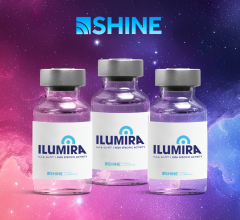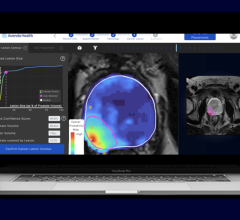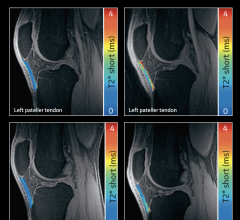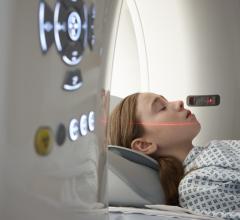July 17, 2008 - A new study reveals that, with dual-source computed tomography (DSCT), the effective dosage for a heart examination can be significantly lowered, in comparison to conventional CT.
The study also demonstrated that stenoses can be diagnosed with similar high accuracy as with invasive X-ray angiography.
At the University Hospital Zürich in Switzerland, 120 patients with suspected coronary heart disease were scanned with the world’s first CT scanner with two X-ray tubes, a SOMATOM Definition from Siemens Healthcare. The Siemens application, Adaptive Cardio Sequence with the step-and-shoot mode, was also used for the first time with a dual-source CT. The results of the study were published in the June issue of Heart, the official journal of the British Cardiovascular Society.
Angiography is a diagnostic procedure used to clarify coronary arterial occlusion. Normally, this examination is conducted using angiography devices in the catheter laboratory and CT images. But with CT, the question of the radiation dosage plays a huge role. Researchers at the university hospital now want to see whether the dose used during CT angiography can be reduced.
The research team used the Adaptive Cardio Sequence, which was recently developed by Siemens for all SOMATOM Definition Scanners. The application is based on the step-and-shoot method, in which the next respective diastole is calculated and only this phase of the cardiac cycle is used to obtain image data. The combination of Adaptive Cardio Sequence and the DSCT’s maximum time resolution of 83 msec facilitates this technique in a particularly reliable fashion and permits a further significant reduction in dosage.
“The results show that CT coronary angiography with a dual-source CT in step-and-shoot mode produces images of excellent diagnostic quality in patients with stable heart rates up to 70 bpm,” said Dr. Hatem Alkadhi, specialist in radiology at the Institute for Diagnostic Radiology, University Hospital Zürich. “The dosage reduction achieved in comparison to previous CT angiography is also remarkable. In our study, we required an effective dose of 2.5 mSv on average with a deviation of plus/minus 0.8 mSv. In the literature, a normal average effective dose for heart scans of between 9 mSv and 21 mSv is reported.”
Siemens said the Adaptive Cardio Sequence supplements the step-and-shoot method with intelligent algorithms, which monitor the heart frequency of patients and, if necessary, respond to arrhythmia, such as extrasystoles, additional heart beats. In this case, the recording phase is automatically postponed in order to avoid image errors due to the sudden movement. In addition, the recording window can be widened a little more if required so that, with the Adaptive Cardio Sequence, the robustness of the CT scan can be increased significantly overall.
For more information: www.siemens.com/healthcare


 July 25, 2024
July 25, 2024 








